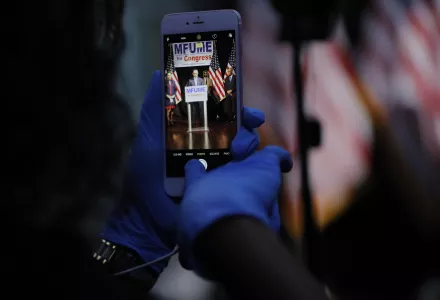
Understanding Election Mis and Disinformation
The Election Influence Operations Playbook for State and Local Election Officials is part of a series of playbooks developed since 2017 by the Defending Digital Democracy Project (D3P) at Harvard Kennedy School’s Belfer Center to help election officials prepare for and respond to cyber and information attacks.
The Information Operations Playbook provides advice and guidance for election officials to assist them in better understanding, countering, and responding to influence operations. It is divided into three parts: Understanding Election Mis and Disinformation; The Mis/Disinformation Response Plan; and The Mis/Disinformation Response Scenario Plans (by request).
Part 1: Understanding Election Mis and Disinformation
This section of the Playbook provides an introduction to Influence Operations: what they are, who is carrying them out, why they can impact our elections, and how they work. Influence Operations (IO), also known as Information Operations, are a series of warfare tactics historically used to collect information, influence, or disrupt the decision making of an adversary. IO strategies intentionally disseminate information to manipulate public opinion and/or influence behavior. IO can involve a number of tactics, including spreading false information intentionally. This is known as “disinformation.”
Skilled influence operations often deliberately spread disinformation in highly public places like social media. This is done in the hope that people who have no connection to the operation will mistakenly share this disinformation. Inaccurate information spread in error without malicious intent is known as “misinformation.”
This playbook explores mis and disinformation incidents that specifically focus on elections operations and infrastructure, where election officials are best positioned to counter them. Throughout these guides we refer to mis/disinformation incidents together, as the strategies for countering or responding to them are the same.
Download the full Playbook:
Download the "5 Questions" hand-out:








